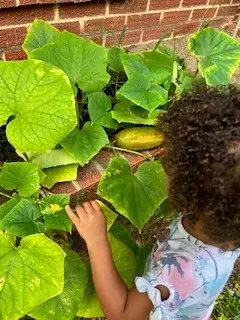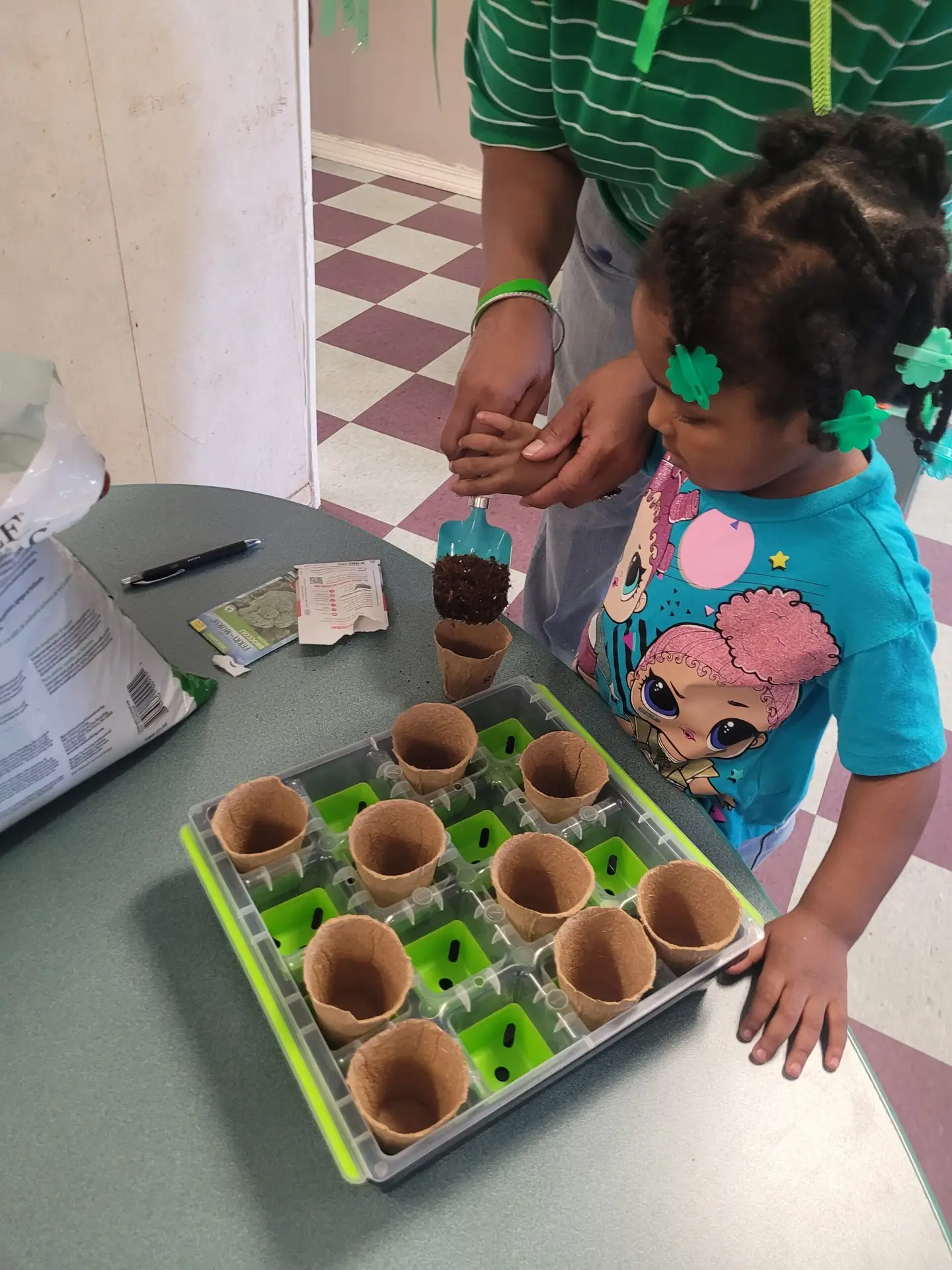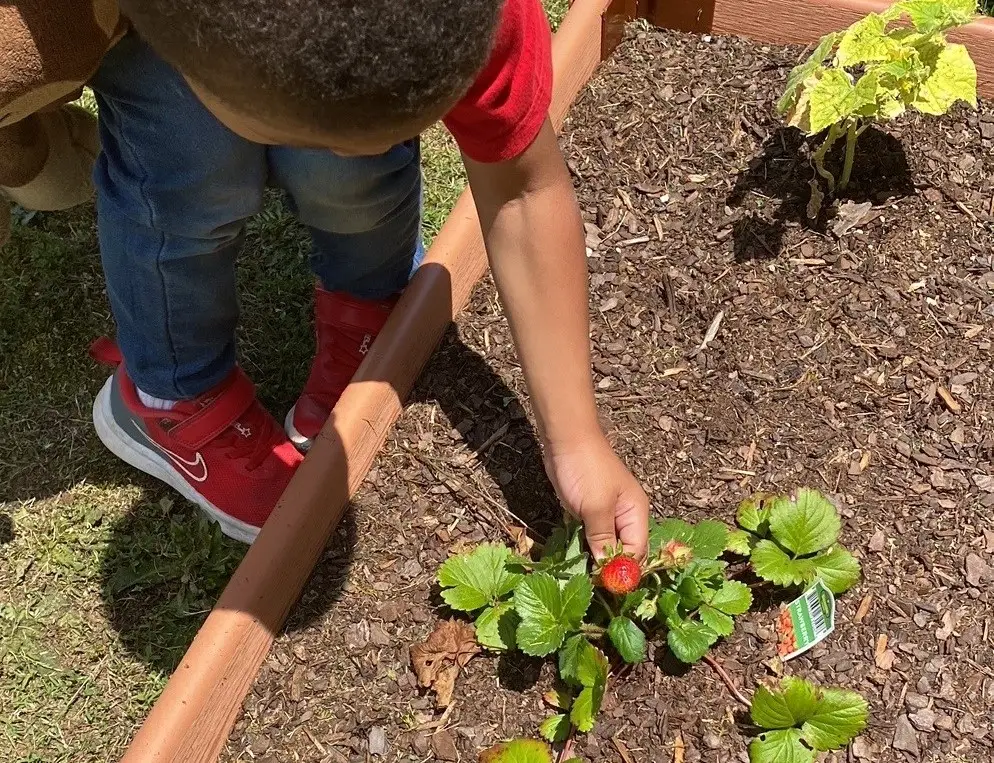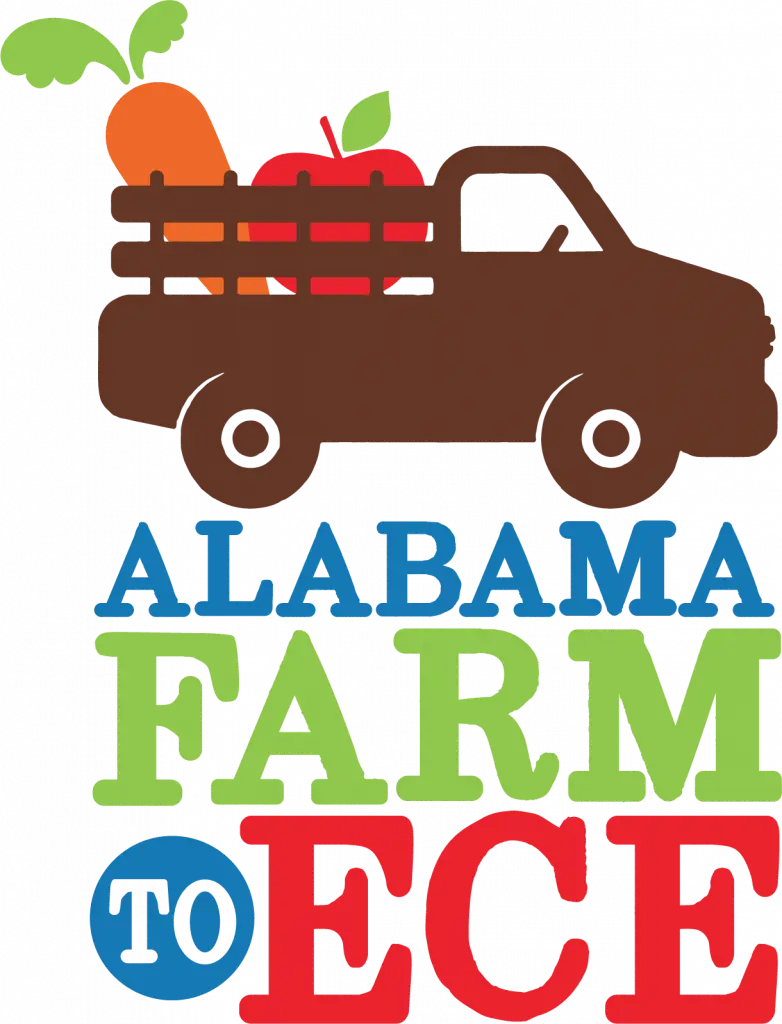This article has been written by Alicia Jordan, a partner of the Alabama Farm to ECE Coalition. Alicia is a dedicated small farmer with a passion for sustainable agriculture and community engagement. As the owner of Boots on the Farm Consulting, LLC, she combines her background as a former early childhood education teacher with her love for the land to nurture growth in both crops and young minds.
The warm months of summer are a time of abundance and growth, especially on farms and in programs that offer gardening experiences in Alabama. For children, this season offers a unique opportunity to learn about where their food comes from and to experience the joys of harvesting fresh produce. As a former ECE teacher, I believe in the importance of connecting young minds to the natural world. Summer harvest experiences in early childhood programs can cultivate curiosity, teach valuable life skills, and foster a love for healthy eating and physical activity.
A Day in the Life of a Young Harvester
Imagine a sunny morning with the air filled with the earthy scent of soil and the sweet aroma of ripe fruits. The children arrive, brimming with excitement and curiosity. Each child is given a small basket and a hat to protect them from the sun. After a quick safety briefing and an introduction to the farm, they are ready to embark on their harvesting adventure.
Learning Through Doing
Children learn best through hands-on experiences, and what better way to learn about fruits and vegetables than by picking them straight from the vine? During our summer harvest sessions, children get to:
- Pick Their Own Produce
- From juicy tomatoes to crunchy cucumbers, children explore the garden and pick their own vegetables. They learn to identify different plants and understand the stages of growth.
- Taste Freshly Harvested Food
- There’s nothing quite like the taste of a freshly picked strawberry or a snap pea straight from the pod.

Hands-On Learning Activities
To enhance the educational experience, there are a variety of hands-on activities tailored to young learners:
- Story Time in the Garden
- After a morning of harvesting, children can gather for story time under the shade of a tree. You can read books about farming, gardening, and the journey of food from farm to table.
- Crafts with Nature
- Using leaves, flowers, and other natural materials, children create beautiful art projects that they can take home. This activity encourages creativity and a deeper connection to nature.
- Planting Seeds for the Future
- Each child can plant their own seeds in small pots to take home. This activity teaches patience and responsibility as they care for their growing plants with their families.

Benefits of Farm to Early Childhood Education
Not only are these activities fun and engaging for children, but provide a wealth of benefits for children as they grow and develop. Incorporating gardening experiences into early childhood education offers numerous benefits:
- Health and Nutrition
- Children learn about the importance of fresh, healthy foods and are more likely to try new vegetables when they’ve had a hand in growing them.
- Physical Activity
- Harvesting and gardening activities get children moving and help develop their motor skills.
- Environmental Stewardship
- By learning about the natural world and sustainable farming practices, children develop a sense of responsibility towards the environment.
- Social and Emotional Development
- Working together in the garden fosters teamwork, communication, and a sense of accomplishment.

